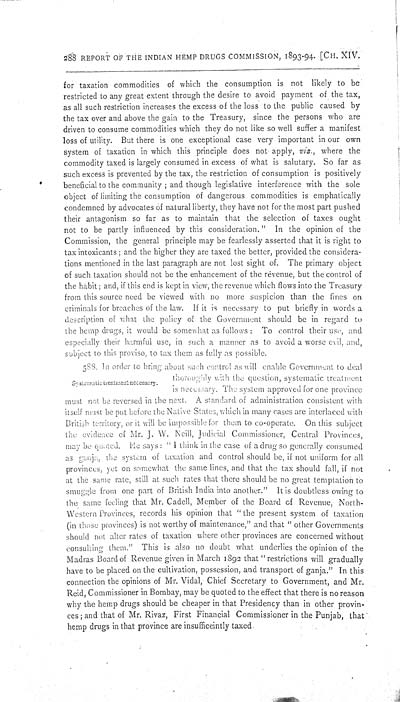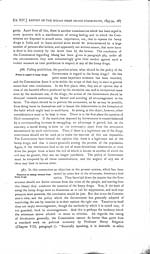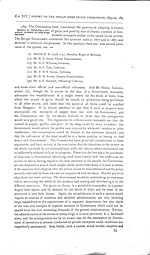Medicine - Drugs > Report of the Indian Hemp Drugs Commission, 1894-1895 > Volume I
(322) Page 288
Download files
Individual page:
Thumbnail gallery: Grid view | List view

288 REPORT OF THE INDIAN HEMP DRUGS COMMISSION, 1893-94. [CH. XIV.
for taxation commodities
of which the consumption is not likely to be
restricted to any great extent through the desire to avoid payment
of the tax,
as all such restriction increases the excess of the loss to the
public caused by
the tax over and above the gain to the Treasury, since the persons
who are
driven to consume commodities which they do not like so well suffer
a manifest
loss of utility. But there is one exceptional case very important
in our own
system of taxation in which this principle does not apply, viz.,
where the
commodity taxed is largely consumed in excess of what is salutary.
So far as
such excess is prevented by the tax, the restriction of consumption
is positively
beneficial to the community; and though legislative interference
with the sole
object of limiting the consumption of dangerous commodities is
emphatically
condemned by advocates of natural liberty, they have not for the
most part pushed
their antagonism so far as to maintain that the selection of taxes
ought
not to be partly influenced by this consideration." In the opinion
of the
Commission, the general principle may be fearlessly asserted that
it is right to
tax intoxicants; and the higher they are taxed the better, provided
the considera-
tions mentioned in the last paragraph are not lost sight of. The
primary object
of such taxation should not be the enhancement of the revenue, but
the control of
the habit; and, if this end is kept in view, the revenue which
flows into the Treasury
from this source need be viewed with no more suspicion than the
fines on
criminals for breaches of the law. If it is necessary to put
briefly in words a
description of what the policy of the Government should be in
regard to
the hemp drugs, it would be somewhat as follows: To control their
use, and
especially their harmful use, in such a manner as to avoid a worse
evil, and,
subject to this proviso, to tax them as fully as
possible.
Systematic treatment necessary.
588. In order to bring
about such control as will enable Government to deal
thoroughly with the
question, systematic treatment
is necessary. The system approved for one province
must not be reversed in the next. A standard of administration
consistent with
itself must be put before the Native States, which in many cases
are interlaced with
British territory, or it will be impossible for them to co-operate.
On this subject
the evidence of Mr. J. W. Neill, Judicial Commissioner, Central
Provinces,
may be quoted. He says: "I think in the case of a drug so generally
consumed
as ganja, the system of taxation and control should be, if not
uniform for all
provinces, yet on somewhat the same lines, and that the tax should
fall, if not
at the same rate, still at such rates that there should be no great
temptation to
smuggle from one part of British India into another." It is
doubtless owing to
the same feeling that Mr. Cadell, Member of the Board of Revenue,
North-
Western Provinces, records his opinion that "the present system of
taxation
(in those provinces) is not worthy of maintenance," and that "other
Governments
should not alter rates of taxation where other provinces are
concerned without
consulting them." This is also no doubt what underlies the opinion
of the
Madras Board of Revenue given in March 1892 that "restrictions will
gradually
have to be placed on the cultivation, possession, and transport of
ganja." In this
connection the opinions of Mr. Vidal, Chief Secretary to
Government, and Mr.
Reid, Commissioner in Bombay, may be quoted to the effect that
there is no reason
why the hemp drugs should be cheaper in that Presidency than in
other provin-
ces; and that of Mr. Rivaz, First Financial Commissioner in the
Punjab, that
hemp drugs in that province are insufficeintly taxed.
Set display mode to: Large image | Zoom image | Transcription
Images and transcriptions on this page, including medium image downloads, may be used under the Creative Commons Attribution 4.0 International Licence unless otherwise stated. ![]()
| India Papers > Medicine - Drugs > Report of the Indian Hemp Drugs Commission, 1894-1895 > Volume I > (322) Page 288 |
|---|
| Permanent URL | https://digital.nls.uk/74574710 |
|---|---|
| Description | Chapter XIV, cont. |
| Description | [Volume 1]: Report. |
|---|---|
| Attribution and copyright: |
|




